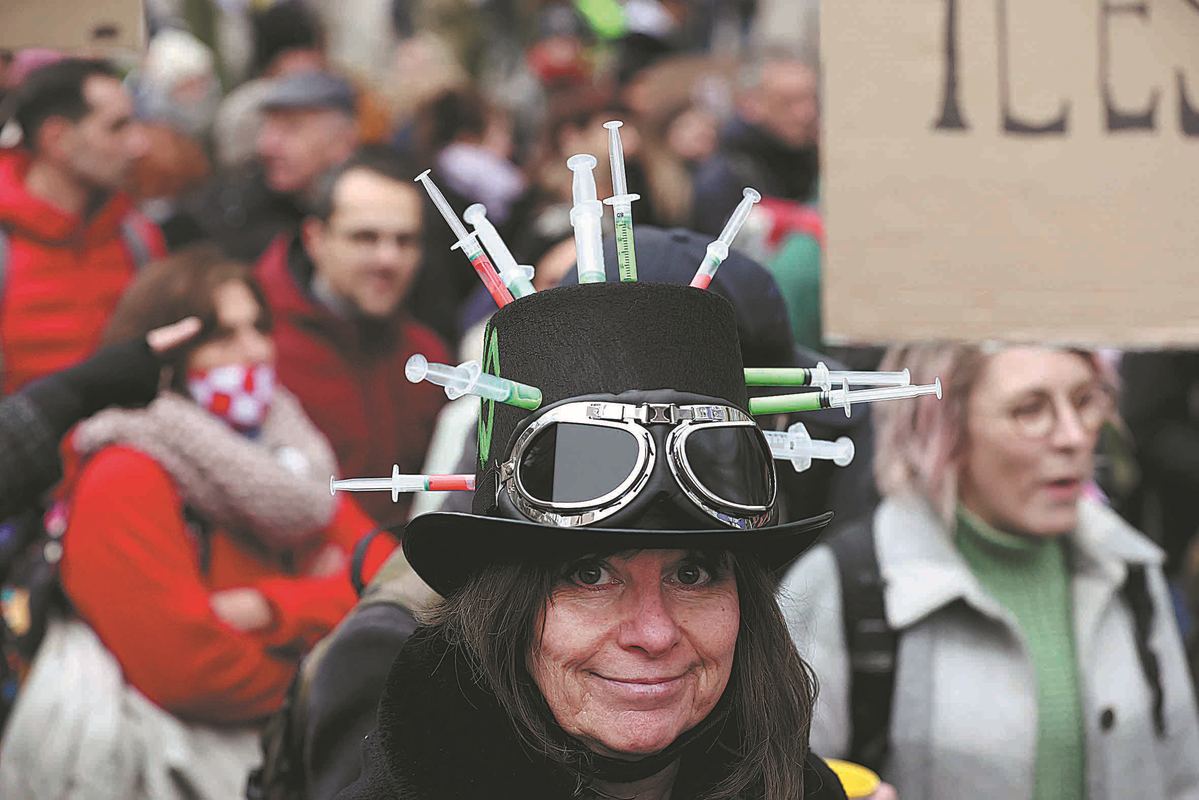EU at crossroads as it tackles testing challenges


Numerous measures
The EU has taken many measures to tackle its problems. It has a 750 billion euro ($846.5 billion) fund for economic recovery. To strengthen its strategic autonomy and reduce reliance on NATO and the US for protection, the bloc has the Strategic Compass, which calls for the creation of a rapid reaction force of 5,000 personnel by 2025.
The organization has also presented its proposals for implementing the EU Climate Law-the so-called Fit-for-55 package-to help realize the goal of reducing its greenhouse gas emissions by 55 percent by 2030.
Tian Dewen, deputy director of the Institute of European Studies at the Chinese Academy of Social Sciences, said that seeking integration within, and strategic autonomy externally, are urgent issues for development of the EU, but it remains difficult for it to realize both these goals.
Despite most European officials agreeing that the EU needs to address many challenges, achieving a consensus on policies has been difficult for the 27-member bloc, as each country has its domestic priorities, Tian said.
For instance, a report released by the European Defence Agency last month said spending on defense by EU countries, excluding Denmark, accounted for 1.5 percent of their combined GDP in 2020. Nineteen of the nations increased their defense expenditure year-on-year, while joint investment in defense projects within the EU fell.
Moreover, Zheng Chunrong, head of the Germany Research Institute at Tongji University in Shanghai, said Germany and France, the two "engines" for the EU's future, both face uncertainties domestically, which might affect the EU's development.
"The leading roles played by Germany and France in the EU have waned in recent years due to their growing domestic constraints as well as the declining willingness among other EU members to follow them," Zheng said.
He added that Germany has just formed its first three-party coalition government after former chancellor Angela Merkel ended her 16 years in office. The new government will inevitably need to spend more time and energy coordinating positions and balancing interests among the ruling parties, so Chancellor Olaf Scholz might not have as strong a say as Merkel, and would be more prudent on pushing forward EU projects, Zheng said.
Biscop said the impact of Merkel's retirement should not be overestimated, as "the fate of the EU never depends on one person, however meritorious, but on the interplay between member states' governments and the leadership of the EU institutions".
"In that sense, relations between the next French president and Chancellor Scholz will indeed be of prime importance," he said.
French President Emmanuel Macron, who has been ambitious over EU integration and strategic autonomy, faces a presidential election in April, the first challenge for him this year, Djordjevic said.
Another challenge for Macron is that France took over the EU presidency for six months from Jan 1, which will show if the country wants to impose its own vision of strategic autonomy. That vision will certainly be reflected in the Strategic Compass on defense and foreign policy, which is expected to be adopted by the EU in March, Djordjevic added.
He said the situation in Germany should also be considered as Scholz takes on the difficult role of succeeding Merkel.
"Given the role which Germany has within the EU, Scholz's achievements at international level, with the aim of maintaining a balanced diplomatic approach to world powers, will be of great importance both at national and supranational level," he said.
European Commission President Ursula von der Leyen has put forward the vision of strengthening Europe together in 2022 and has submitted specific targets for promoting the EU's economic recovery, green development, digitalization, and strengthening its global influence.
Zheng said the extent to which these goals can be achieved depends on whether Germany and France make concerted efforts and obtain support from other member countries.
"However, with the current internal and external constraints, the EU reform agenda can only be carried out by taking small steps," he added.
Ma Xiaolin, director of Zhejiang International Studies University's Institute for Studies on the Mediterranean Rim, said EU cohesion is not as strong as previously, and the organization faces many challenges. Europe, in general, is at a crossroads, with racism, Euroskepticism and extreme nationalism on the rise.
"The European integration process appears to be stagnant and the EU's future remains to be seen. Moreover, Europe wants to reduce reliance on and influence from the US in various sectors-including economy and defense, but it is hard to say whether the organization can realize that goal," Ma said.


















